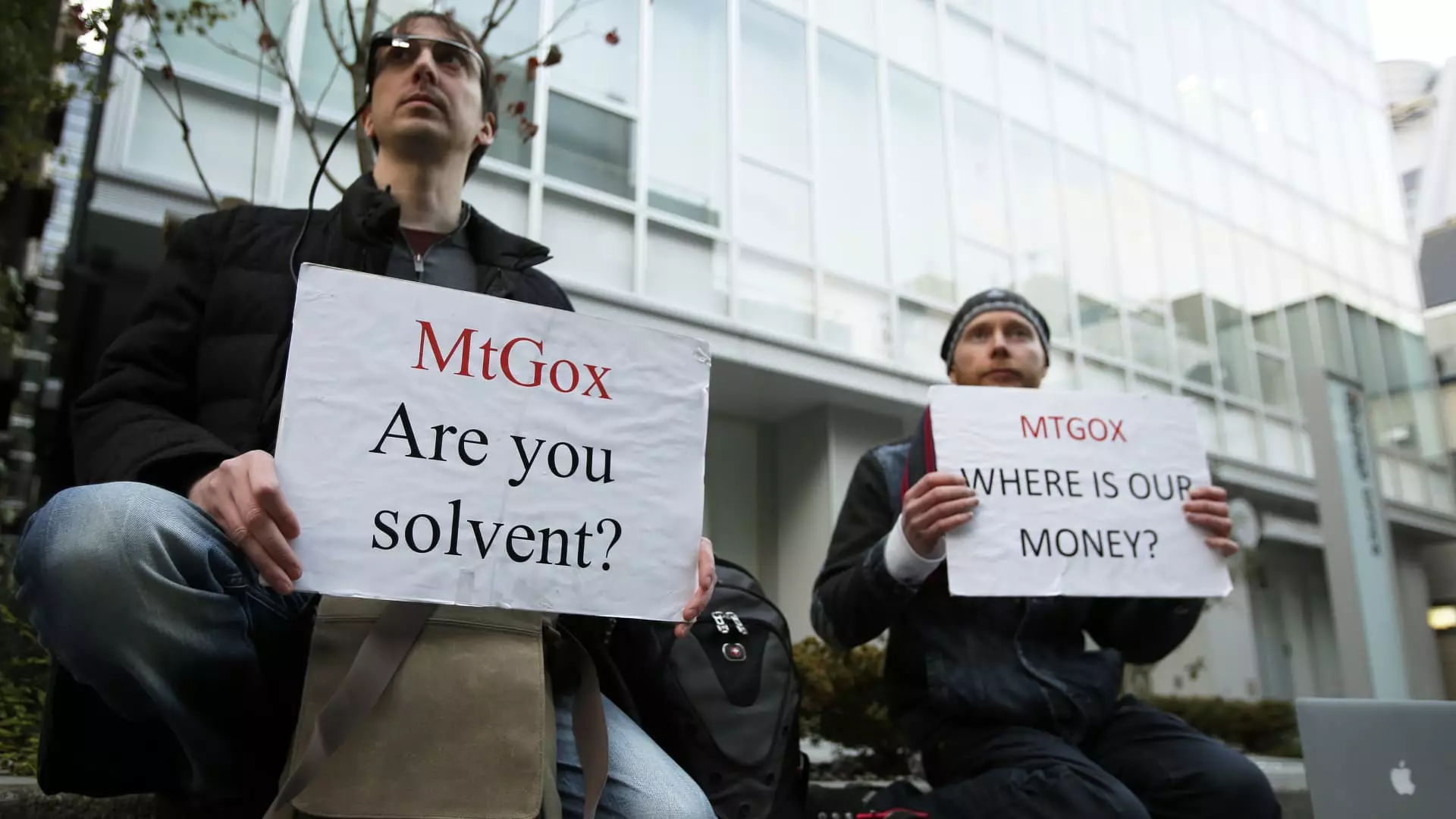In the cryptocurrency world, the collapse of Mt. Gox, a Japanese bitcoin exchange, remains a significant event that took place a decade ago. After a major hack in 2011, which resulted in the loss of up to 950,000 bitcoins, the exchange declared bankruptcy in February 2014. However, after years of waiting, creditors are finally set to receive a noteworthy payout, with some even experiencing a 10,000% gain on their initial investments.
The repayments to the creditors of Mt. Gox are expected to be significant, with some estimates suggesting that roughly $9 billion worth of bitcoin will be returned to the rightful owners. Among the claimants is Gregory Greene, an Illinois native, who filed a class action lawsuit against Mt. Gox after his frozen account contained $25,000 worth of bitcoin in 2014. With the surge in bitcoin’s value over the years, Greene’s lost stash is now potentially worth around $2.5 million.
The payouts to the creditors are anticipated to begin rolling out in July, with a mix of bitcoin and bitcoin cash being distributed. While many creditors are likely to hold onto the assets they receive, there is also the possibility of significant selling, especially among those looking to capitalize on the gains after years of waiting. Analysts have warned about potential downside risks in the crypto market due to the selling pressure from Mt. Gox creditors.
One of the reasons why creditors have opted for in-kind reimbursements is to avoid the hefty capital gains tax associated with cashing out. Instead, they may choose to hold their positions to monetize their bitcoin without selling it directly. By using bitcoin as collateral to borrow dollars, creditors can potentially bypass a large tax bill while still taking advantage of the cryptocurrency’s increased value.
Despite the long wait for payouts, many Mt. Gox creditors have remained steadfast in their belief in bitcoin and have resisted the temptation to sell their claims. The decision to hold onto the assets may be influenced by the potential for further price gains in the future. While there is a possibility of market impact if even a small percentage of the distributed bitcoin is sold, many creditors seem inclined to retain their holdings.
The Mt. Gox bankruptcy payout represents a significant moment in the history of cryptocurrency, as creditors are poised to receive a substantial windfall after years of uncertainty. While the decision to sell or hold onto the assets remains with the individual creditors, the impact on the crypto market is something to watch closely. As the payouts begin next month, the aftermath of Mt. Gox’s collapse will continue to unfold, shaping the future of bitcoin and its investors.


Leave a Reply